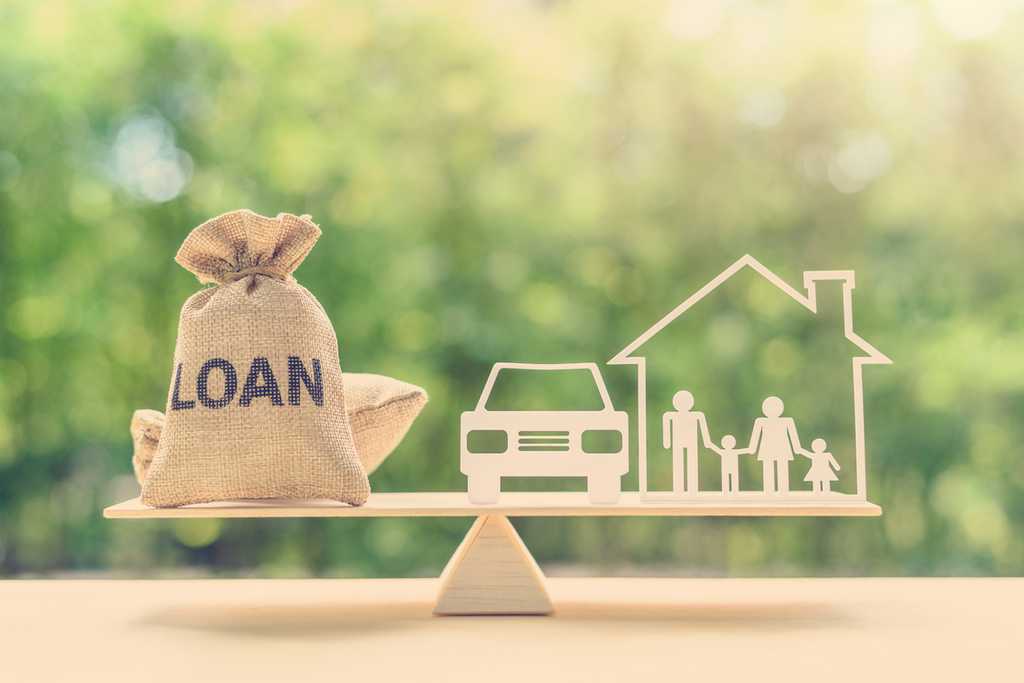When you take out a loan, and the debt is secured by an asset, this is known as a secured loan. Secured loans are generally easier to get approved and offer a lower interest rate than unsecured loans.
Consumers and businesses use secured loans to make a variety of purchases, including buying a home, vehicle, or piece of equipment. In this article, you'll learn what a secured loan is, how they work, and what happens if you default on the loan.
What are secured loans?
A secured loan is a loan that is backed by collateral, which provides security for the lender if you don't repay the loan. In exchange, most secured loans tend to have lower interest rates, better terms, and easier approval than unsecured loans.
Personal assets used for collateral may be your home, car, or investments. In the business world, collateral for a secured loan may include a building, a piece of equipment, or your personal assets.
How does a secured loan work?
Secured loans provide security for a lender if the borrower doesn't repay the loan. The lender issues a loan to a borrower based on the asset's value and the borrower's ability to repay the loan.
As part of the loan agreement, the lender places a lien against the collateral so that they have a priority claim on it over other creditors if you stop paying, file bankruptcy, or have other credit issues.
When you repay the loan, the lender removes the lien from your collateral. If you don't repay the loan, the lender may go after the collateral to cover the remaining balance.
Types of secured loans
There are many different types of secured loans available to finance your purchases. These are a few of the most common types.
- Mortgage loan: A mortgage uses your home to secure a loan to buy or refinance the property.
- Home equity loan or line of credit: These loans are secondary to a primary mortgage and tap into the equity in the home. Home equity loans often carry a higher interest rate and have a shorter term since they are riskier than a primary mortgage.
- Land loan: A loan to purchase land where the value of the land secures the loan.
- Auto loan or lease: An auto loan uses the vehicle you buy to secure the loan to purchase it. By comparison, an auto lease is more like renting the car with a lump sum payment due at the end of the lease if you want to purchase it.
- Car title loans: A short-term loan for quick cash when you own a car that does not have a loan against it. Most car title loans are capped at 25% to 50% of the car's value.
- Margin loan on investments: A loan from your broker up to 50% of the value of your investments in stocks or cryptocurrency. Margin loans allow you to access the value of your investments without selling them and triggering a tax bill. If the value of the assets drops, you may have to deposit more assets or risk the lender selling them on your behalf.
- Secured credit card: A credit card for people with bad credit or no credit history where the security deposit determines the size of the credit limit.
- Life insurance loan: Borrowing against the cash value of your life insurance policy. Life insurance loans reduce the value of your death benefit if you pass away before you repay the loan.
- Business loan: Businesses use secured loans for various purposes, including buying a building, getting new equipment, or borrowing against inventory, accounts receivable, or purchase orders.
Secured vs unsecured loans
There are two primary types of loans that a borrower can take out – secured or unsecured. A secured loan is backed by an asset, while an unsecured loan is not. Unsecured loan approvals are primarily based on the size and type of loan requested, your credit history, income, and other debt obligations.
If you default on an unsecured loan, the lender does not have an asset that it can seize or place a lien on. The lender may take you to court for a judgment against you. If they win, they can garnish your wages or seize eligible assets.
Without an asset backing the loan, unsecured loans are generally riskier than secured loans. Unsecured loans typically carry higher interest rates and fees to compensate the lender for the additional risk.
How do I apply for a secured loan?
To get a secured loan, you'll fill out the lender's application. Start by providing your personal information, such as name, address, phone number, and Social Security Number. The application will also ask about your job, income, and other debt obligations, including if you have a mortgage or pay rent.
In addition to providing your personal information, you'll also include details of the asset that is backing the loan. The details required vary based on the type of secured loan you are applying for. This information details the asset backing the loan and lets the lender determine its value. It also allows the lender to place a lien against the asset to secure the loan.
What happens if you default on a secured loan?
A default occurs when a borrower stops making payments or does not pay the entire amount due. At first, your interest rate may switch to a higher rate known as the penalty interest rate. Additionally, if you miss payments, the lender may charge late fees.
If you are unable or unwilling to bring the loan current, your collateral may be at risk. The collateral pledged to secure the loan protects the lender if you default on the loan.
Depending upon the type of asset, the lender may utilize different tactics to recover the money owed when you've defaulted on a loan. Sometimes, the lender will put a lien on your assets (like a home). When there is a lien, you must pay it off in order to sell or refinance the asset. For other assets, the collateral may be repossessed (like a car) or liquidated (like stocks).
Sometimes, the collateral value does not cover the entire amount due. Depending upon which state you're in and the type of loan, the lender may be able to come after you for the amount left over after applying the value of the collateral. In other states, the lender may only go after the asset that was pledged to secure the loan.
Where to find secured loans
If you're interested in applying for a secured loan, numerous traditional and online lenders offer them. Each lender typically specializes in different types of secured loans. So, where to find them depends on which type of loan you want to get.
Based on the secured loan types mentioned above, here's where to find lenders that offer each type.
- Mortgage loan: Banks, credit unions, and mortgage brokers.
- Home equity loan or line of credit: Banks, credit unions, and mortgage brokers.
- Land loan: Banks, credit unions, and mortgage brokers.
- Auto loan or lease: Auto dealer, bank, or credit union.
- Car title loans: Online or retail car title lenders.
- Margin loan on investments: Brokerage firms.
- Secured credit card: Banks and credit card issuers.
- Life insurance loan: Life insurance company.
- Business loan: Banks, credit unions, and online lenders.
Secured loans put your assets on the line
Secured loans make it easier for lenders to provide money to a borrower. By having collateral that secures the loan, the lender has an asset that they can use to recover the loan in case the borrower defaults.
Generally, secured loans are safer than unsecured loans. Therefore, they tend to offer lower rates and more favorable terms. There are many different types of secured loans, so it is important to find lenders that offer the type of loan you need and compare their rates and terms.

